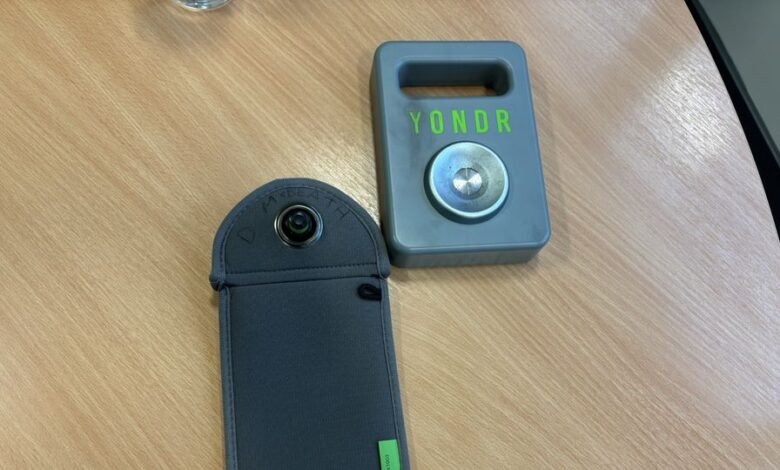Kent Schools Lead Charge in Smartphone Bans, Citing Mental Health and Safety Concerns

Two schools in Kent are being hailed for taking bold steps to tackle the growing problem of smartphone dependency among children and they say it’s helping to “give pupils their childhood back.”
At The John Wallis Academy in Ashford, pupils have been required to lock away their phones for the entire school day for over a year. The academy, the only school in the county enforcing such a strict policy, uses Yondr pouches, lockable cases that keep devices inaccessible during lessons and breaks.
At the start of each school day, every pupil from primary to secondary level, places their phone in a pouch that remains sealed until dismissal time, when designated unlocking stations release the devices as students leave campus.
While the policy initially sparked debate, the move has since gained widespread support among students, parents, and staff. This month, the academy received a Global Inclusion Award from the International Forum of Inclusion Practitioners in recognition of its approach to student wellbeing and inclusion.
Principal Damian Macbeth said the policy is about responsible use of technology and ensuring child safety.
“It’s about having appropriate technology,” Macbeth explained. “Giving a child a smartphone which is essentially a portable computer is not always a great use of technology. That gives not only the child access to the world, but the world access to the child. That is not appropriate, and schools have a duty to keep children safe.”
The initiative aligns with a broader national conversation on the impact of mobile phones on young people’s mental health, learning, and behaviour.
This week, Greatest Hits Radio is examining how children relate to their phones ahead of the release of findings from a countywide survey by Kent Police and Crime Commissioner Matthew Scott. The survey explores how children are using the internet and whether they are being exposed to unwanted messages or harmful content.
Meanwhile, another Kent school has introduced a similar ban following disturbing incidents among younger pupils.
At Cheriton Primary School near Folkestone, smartphones were prohibited at the start of the new academic year after pupils as young as seven reported online bullying and exposure to inappropriate material.
Headteacher Sophia Dover said she was compelled to act after several pupils arrived at school distressed by messages and images shared online.
“Children were turning up in tears because of what they had seen or been sent the night before,” she said. “That’s when we realised something had to change.”
The decision follows UK government guidance issued last year giving schools greater authority to restrict or ban phones. Ministers argued that mobile devices often disrupt lessons and negatively impact pupils’ focus, wellbeing, and sleep patterns.
At the same time, parent advocacy groups are calling for a nationwide ‘smartphone-free childhood’ movement, urging families to delay giving smartphones to children under 16.
Asked whether she supports such a move, Ms. Dover said:
“Absolutely. Children should not have to suddenly mature to deal with things they are seeing online. We just need to learn how to use the internet safely.”
As Kent schools take the lead, many educators across the UK are watching closely to see whether these bans could mark a turning point in the push for healthier, more balanced childhoods, one where technology serves education, not the other way around.





